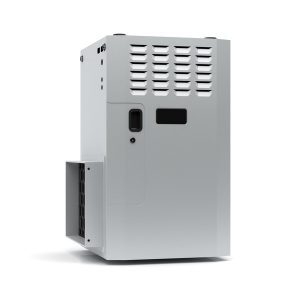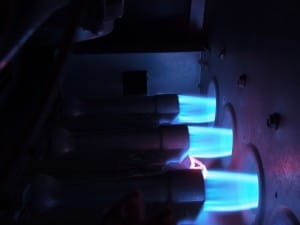
Ah, yes, the age-old question of which is better—the gas or the electric furnace. Those of you that followed a link to this post because you’re looking for a simple, clear cut answer to this question may be a bit disappointed in what we have to tell you. That is that both have their pros and cons. Don’t worry, though. We’ve got a lot more to share with you than that initial response. It’s a more complex question than you may realize.
Let’s first reframe the way that you’re thinking about this question, to begin with. Choosing a new heater of any kind isn’t about choosing the best heater. It’s about choosing the heater that’s best for you. There’s a big difference between the two. Not only will we make sure that you have the right furnace in place for your needs, but we can handle everything from your furnace installation to routine maintenance and furnace repair in Loveland, CO.
Natural Gas Is Typically Preferred
Again, we’re not going to say that natural gas is the “best” option, but it is hard to argue against the benefits of using a natural gas furnace to heat your home—and natural gas as a fuel source in general. Natural gas is quite clean-burning for a fossil fuel, it is piped directly into homes, and can be used for a number of different applications.
There is also the matter of affordability. We’re going to talk about why efficiency ratings can be a bit misleading, and why you shouldn’t necessarily equate them with affordability in terms of operating. Not only does natural gas burn quite efficiently, with modern furnaces really getting a lot of out of the fuel, but the gas itself is quite affordable. So, what about electric models?
Electricity Has Its Own Benefits
Remember, not every home has access to natural gas. That isn’t the only reason one would ever turn to an electric furnace, but it is a major motivator. The use of natural gas necessitates some proximity to a natural gas line, and that’s not a guarantee in every area.
If electricity can do the same thing as natural gas when heating your home, and if it’s already in pretty much every home anyway, why not just choose electricity to start? Well, because it costs more to heat a home with electricity than natural gas. While electric furnaces are incredibly efficient, because they don’t lose heat via flue gases the way that gas furnaces do, the cost of electricity is also considerably higher than natural gas. That’s why it’s possible to have a more efficient system that still costs more to operate.
If you have any questions about any of this, or if you are ready to schedule your furnace repairs, tune-up, or installation with qualified professionals that you can trust to do the job right, just let us know.



 weather headed our way before this winter season is over. How has your
weather headed our way before this winter season is over. How has your